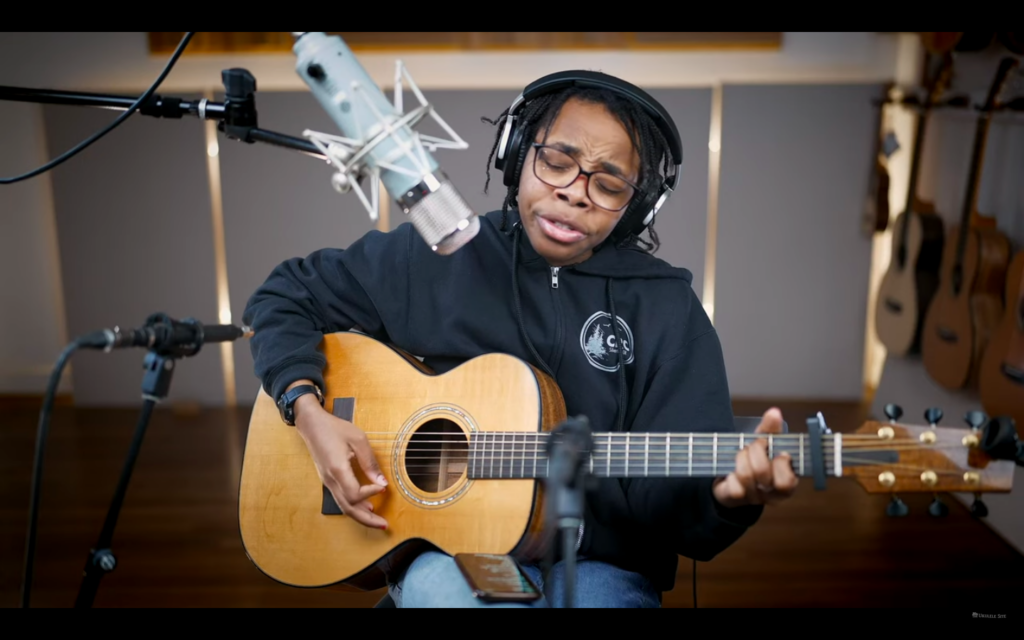One of my favorite Youtube videos is titled “Guess: JAKE or Young KID? — Ukulele Challenge.”
If you know anything about the current ukulele scene, you’ll immediately figure out that “Jake” refers to Jake Shimabukuro, a ukulele virtuoso who is probably best known for his ukulele versions of “While My Guitar Gently Weeps” and “Bohemian Rhapsody.” But his range as a musician goes far beyond rock and pop music. He has arranged jazz, classical, funk, and bluegrass music for the ukulele, and written his own compositions. He is known for playing complex music requiring amazing feats with both left and right hands.
The point of “JAKE or Young KID?” is simple: a panel of professional ukulele players listen to only the audio portion of a Youtube video of one of Jake’s arrangements or compositions. Sometimes it will be Jake playing, but sometimes it will be a child or young teen playing. The panelists have to figure out which it is. Given what a virtuoso player Jake is, this should be no problem, right?
Actually, the panelists regularly mistake Jake for the Young Kid, and the Young Kid for Jake. This says a lot for the high level of playing in the rising generation of ukulele players (it also says a lot about the popularity of the ukulele these days, that kids are willing to spend so much time learning the instrument). But it also makes us confront one of the nagging questions of our time: how do we know what is true and what is false? If a ten year old kid can play like Jake Shimabukuro, then what?
But the video doesn’t get into existential questions like that. It’s just hilarious. Although panelist Kalei Gamaio easily beats panelists Abe Lagrimas, Jr., and Aldrine Guerrero, each of the panelists makes hilarious mistakes.


